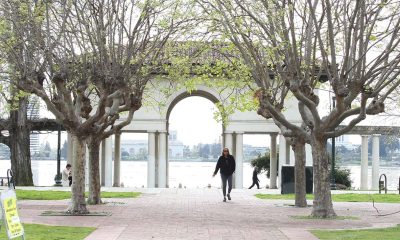Highlights
Reforming Reform: The Future of Juvenile Justice in California
California’s newly formed Office of Youth and Community Restoration (OYCR) focuses its programs more on rehabilitating young people than punishing them. The OYCR, a division of the California Health & Human Services Agency (CalHHA), was created as part of the state’s overhaul of the juvenile justice system, which will close three of California’s four juvenile justice facilities by July 2023. Instead, it will provide rehabilitation services to incarcerated youth ages 13 to 25 at facilities in their home counties.

McKenzie Jackson | Impact Alameda
For Samuel Brown, co-founder of the Anti-Violence Safety and Accountability Project and his wife, Jamilia Land, who is also an activist, criminal justice reform in the Golden State does not involve locking away youth offenders and tossing away the key.
“The answer is not putting them inside a baby jail preparing them for an adult jail,” said Brown, who was imprisoned for two decades beginning at 19 years old.
“The answer is to get them into a program that allows them to speak, talk about what they are going through, to participate in activities that are not available in their immediate surroundings,” Brown continued. “By doing that, we teach them social-emotional learning and plant seeds of pro-social behavior and change their course. We need an entirely new approach to how we deal with criminality.”
California’s newly formed Office of Youth and Community Restoration (OYCR) focuses its programs more on rehabilitating young people than punishing them.
The OYCR, a division of the California Health & Human Services Agency (CalHHA), was created as part of the state’s overhaul of the juvenile justice system, which will close three of California’s four juvenile justice facilities by July 2023. Instead, it will provide rehabilitation services to incarcerated youth ages 13 to 25 at facilities in their home counties.
OYCR, said Dr. Mark Ghaly, CalHHA’s secretary, hopes to give imprisoned youths the best chance to be successful in their community.
“This is a total reform here,” he remarked. “In truth, a juvenile justice record is often a fast track into the adult justice system, which is one of the deadliest systems you can be in. We know this is an issue that plagues Brown and Black communities,” he said. “The need for a reformed approach in the way we are talking about is needed. Treating young people as juvenile offenders doesn’t pay out in the long run.”
The reformed approach Ghaly envisions features young people that are jailed for low-level crimes enrolled in substance-abuse services, programs aimed at developing their vocational or other interests, and offering social work or counseling services readily available to help the youths and their families.
“The key is to be developmentally focused,” Ghaly said. “To create programs that support the emotional, social, and health well-being of young people so they can thrive. This starts with developmentally focused, trauma-informed services.
It is meaningful services around education, vocation, and job support. It means family engagement. Restoration. Rehabilitation. Not in the old sense of the way we had rehab for a broken convict,” he said. “It’s something that says young people are still in the process of developing their brain, developing their choices, developing their understanding of the world, and how they fit into it.”
The changed juvenile justice approach comes in the wake of a national movement to address racial disparities in the criminal justice system after an era of mass incarceration.
California and other states are now moving to cut inmate populations and shutter some prisons. Two bills signed into law last year — Senate Bill (SB) 823 and SB 92 – are among initial steps in California’s rehauling of how it handles locking up teens and young adults.
There are approximately 650 inmates, over 80 percent Black and Latino, in the four state facilities for young people run by California Department of Corrections and Rehabilitation’s Division of Juvenile Justice: N.A. Chaderjian Youth Correctional Facility (YCF) and O.H. Close YCF in Stockton, Ventura YCF in Camarillo, and Pine Grove Youth Conservation Camp in Pine Grove.
The bill set in motion a realignment for the Department of Juvenile Justice (DJJ). The agency stopped accepting new juvenile offenders last June and set a closure date of June 30, 2023, for three DJJ jails.
Pine Grove will remain open to train eligible youth in wildland firefighting skills. By the end of June 2023, the other youths will be transferred to facilitates run by the counties where they are residents.
Last year, the coronavirus pandemic delayed the transfer of youths from state to county facilities, but the moves are expected to begin this year.
Ghaly said the pandemic slowed everything down including the hiring of people for positions to get programs running but noted OYCR has received action plans from all 58 California counties on how they will provide housing and rehabilitation services to youth offenders.
The OYCR’s new director, former Santa Clara Superior Court Judge Katherine Lucero, was hired in December.
“I think she is going to be really tremendous,” Ghaly said of Lucero. “If we hadn’t had the pandemic, it might have happened six or eight months ago, but these are things you don’t want to rush. This is such important work. Right now, there is still a lot of work at the community and county level to make sure we have the facilities, the programs, the staff to be able to serve young people.”
The Board of State and Community Corrections earmarked $9.6 million in funds for the Regional Youth Programs and Facilities Grant Program provided by SB 823 to help counties with infrastructure-related needs and improvements in preparation for the transfer of the youth inmates.
More dollars are needed, though. Gov. Gavin Newsom’s proposed 2022-23 budget includes a $100 million one-time general fund for grants given out by the BSCC to support the improvements counties need to make sure their facilities can be “conducive to serving justice-involved youth with a wide range of needs, with a focus on supporting trauma-informed care, restorative justice, and rehabilitative programming,” the budget summary reads.
Ghaly said OYCR’s next steps involve sending more funds to counties including $20 million allocated for technical assistance and support after his department reviews and responds to the jurisdictions’ proposals. He said advocates and government officials are eager to see big strides made in restructuring the state’s juvenile justice system because “real lives are attached to the delays.”
“These are young people not receiving the program we have a vision for,” said Ghaly adding that there is cautious optimism. “We can deliver for these young people. I’m excited about where we are heading.”
Brown, the criminal justice reform advocate, hopes any programs put in place have adequate funding to help incarcerated youth turn their lives around.
“A perfect juvenile justice system is one where – when a child comes in contact with law enforcement, instead of putting them in the system and giving them felonies and records, we take them, assess their needs, put them in the programs they need, and redirect their life,” Brown emphasized.
Education
Dismantling Pipelines to Prison: Fresh Lifelines for Youth (FLY) Reimagines Opportunity for Young People
“Some of the greatest success stories we’ve had is with youth who have been resistant to the process and wanting support,” said Trevor Arceneaux, Associate Director of FLY’s Alameda County operations. “FLY does a really great job at building authentic and trusting relationships with youth. Seeing the change and the walls being torn down and they’re able to engage with us in a different way and let us into their lives where we can understand and learn their needs. Then, we’re able to tap into their genius and get them to operate in the community with a different way.”

Edward Henderson | Impact Alameda
The ACLU defines the school to prison pipeline as a “national trend wherein children are funneled out of public schools and into the juvenile and criminal justice systems.”
Many of the children that fall into this pipeline have learning disabilities, are victims of neglect, abuse, and would benefit from additional services.
However, too many of them have also been subjected to systematic zero-tolerance policies that criminalize minor infractions and serve as catapults, feeding more children into the pipeline to prison.
Fresh Lifelines for Youth (FLY), is an Oakland-based organization dedicated to dismantling the school to prison pipeline by equipping youth with knowledge of the law and empowering youth with a community of supporters that amplify their voices.
FLY’s mission is poetic in the sense that the voices of youth who fell victim to the prison pipeline served as the foundation for the organization’s creation.
Back in 1995, Christa Gannon, FLY’s founder and Stanford University Law School graduate, would often converse with teens facing significant prison time about services that could steer other children away from incarceration.
In many of their responses, the children mentioned education of the law — to know the consequences of poor choices – as well as having role models and opportunities to be of service to their communities. Those ideas are the pillars that FLY was built on.
“Education is power,” said Trevor Arceneaux, Associate Director of FLY’s Alameda County operations. “There are a lot of opportunities to practice that power. It helps to develop a young person’s critical consciousness of the world and how they see it. A lot of times our young people are actively in this pipeline, and they can name it and see it. We can give them options on how to solve these real-world issues.”
In 2000, FLY transitioned to a non-profit, building on the concepts of law education and empowerment. Today, FLY is now one of the Bay Area’s most respected agencies working with youth who are currently or formerly involved in the juvenile justice system.
With 70 staff and more than 200 volunteers, FLY serves more than 2,000 youth throughout the Bay Area each year, ranging from ages 11 to 24.
“Some of the greatest success stories we’ve had is with youth who have been resistant to the process and wanting support,” said Arceneaux. “FLY does a really great job at building authentic and trusting relationships with youth. Seeing the change and the walls being torn down and they’re able to engage with us in a different way and let us into their lives where we can understand and learn their needs. Then, we’re able to tap into their genius and get them to operate in the community with a different way.”
These authentic connections are fostered in the many programs FLY offers to equip youth with the knowledge and confidence they need to navigate life and avoid pitfalls.
In Alameda County FLY offers 4 core programs that provide pivotal services and education.
The Court Appointed Friend and Advocate (CAFA) Mentor Program pairs youth with mentors to meet weekly and support them in developing new behaviors, ambitions and attitudes. Each mentor/mentee pairing has a FLY case manager for support who also attends monthly group activities organized by FLY. All mentors are also granted legal standing to act as advocates for their mentees in the courtroom and at schools.
The FLY Law Program is an interactive 8-to-12-week course covering topics such as police encounters, accomplice liability, three strikes, theft, vandalism, drugs, gangs, and police arrests. The curriculum also touches on critical life skills like anger management, problem solving, conflict resolution, and resisting negative peer pressure. Mid-way through the semester, youth take a field trip to a local university law school where they tour the campus and act out a mock trial in the moot courtroom.
The Leadership Training Program helps youth build the skills and attitudes they need to live a crime-free, self-sufficient life. The program traditionally kicks off with a three-day wilderness retreat that enables youth to break away from negative influences and stresses and begin bonding with FLY staff and peers, developing trust and teamwork skills. (Because of the pandemic, virtual or socially distanced activities have replaced the retreats.) Following the retreat, youth meet monthly to support each other in group settings and to design projects in which they advocate for positive change and give back to their communities. Each young person receives intensive coaching from a FLY case manager to identify and address their greatest barriers.
The STAY FLY Program is a reentry program that develops social emotional learning skills and knowledge of the law in youth ages 18-25. A three-tier system is implemented to support youth as they transition back into the community. Law-related education, pro-social events and civic engagement activities, along with case management and coaching are offered to participants.
“Youth really love being around FLY staff,” said Arceneaux. “That’s more important to me than anything. They are going to remember the connections they have. When I see youth cracking jokes or hitting up staff to tell them about an accomplishment, that lets me know we’re doing what we’re supposed to be doing. We’re really pushing youth to use their voice. In the next three to five years, you’re going to hear about former or current FLY youth advocating or pushing for systematic change. Tapping into their sense of agency and impacting the entire world.”
Business
Is an Employer or Landlord Using Your Felony Conviction Against You? Here’s What You Can Do
The California Department of Fair Employment and Housing (DFEH) is also encouraging the public to report housing ads that use discriminatory language to exclude certain racial groups, immigrants, people with felonies, and applicants with Section 8 or U.S. Department of Housing and Urban Development (HUD) vouchers; etc.
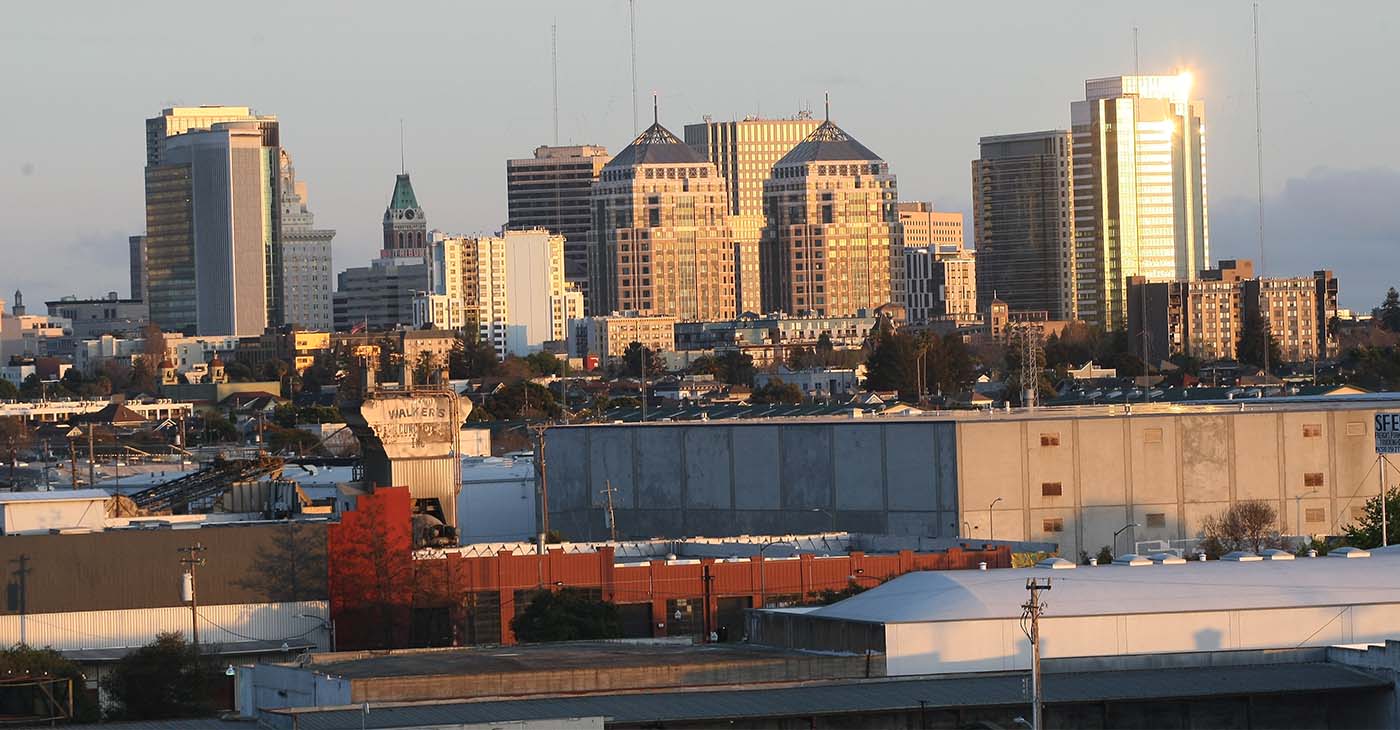
Edward Henderson | Impact Alameda
The California state government has been reminding businesses and landlords across the state that it is illegal to discriminate against job and rental applicants because they have committed felonies or misdemeanors in the past.
The California Department of Fair Employment and Housing (DFEH) is also encouraging the public to report housing ads that use discriminatory language to exclude certain racial groups, immigrants, people with felonies, and applicants with Section 8 or U.S. Department of Housing and Urban Development (HUD) vouchers; etc.
“The California Department of Fair Employment and Housing announced a new effort to identify and correct violations of the Fair Chance Act, a pioneering state law that seeks to reduce barriers to employment for individuals with criminal histories,” a DFEH statement read.
The Fair Chance act, which took effect on January 1, 2018, was written to increase access to employment and housing for Californians with criminal histories — a way to reduce recidivism, among other goals. Employers with five or more employees are prohibited from asking a job candidate about conviction history during the hiring process or when advertising a vacancy.
Since the law passed, the state has sent more than 500 notices to businesses informing them that they have violated protections put in place to protect people seeking work.
The DFEH says it is implementing new technologies to conduct mass searches of online job applications that include unlawful statements. For example, some businesses explicitly state in hiring advertisements that they would not consider applicants with criminal records.
“Using technology to proactively find violations of the state’s anti-discrimination laws is a powerful strategy for our department to protect Californians’ civil rights,” said DFEH Director Kevin Kish. “DFEH is committed to preventing employment discrimination through innovative enforcement actions and by providing clear guidance to employers.”
DFEH released a toolkit to aid employers in adhering to the Fair Chance Act guidelines. The toolkit includes sample forms and guides employers can use to follow required procedures; a suggested statement that employers can add to job advertisements and applications to let applicants know that they will consider individuals with criminal histories; answers to frequently asked questions (FAQs) about the Fair Chance Act and an informational video that explains the Fair Chance Act.
In addition, DFEH plans to release an interactive training and an online app this year.
Before authorities lifted the statewide COVID-19 public health restrictions, DFEH also warned businesses against masking discrimination with COVID safety precautions.
“As Californians navigate the COVID-19 pandemic, the Department of Fair Employment and Housing has provided guidance to protect civil rights and mitigate risk of COVID-19 transmission in employment, housing, healthcare, and, in our guidance released today, businesses open to the public,” said Kish. “We can and must uphold civil rights while simultaneously disrupting the spread of COVID-19.”
DFEH encourages individuals to report job and housing advertisements violating the Fair Chance Act or other instances of discrimination.
Visit the DFEH website to file complaints. (https://ccrs.dfeh.ca.gov/s/login/)
California
COVID Recovery in Alameda County: Our Church Is Offering Free Tests
Variants still pose a threat. And case numbers are still on a gradual decline here in California and around the country. Therefore, we can’t throw all caution to the wind when it comes to keeping our loved ones safe and healthy. The death rate resulting from COVID-19 is still higher for Black Californians than the statewide average, according to numbers from the California Department of Public Health.
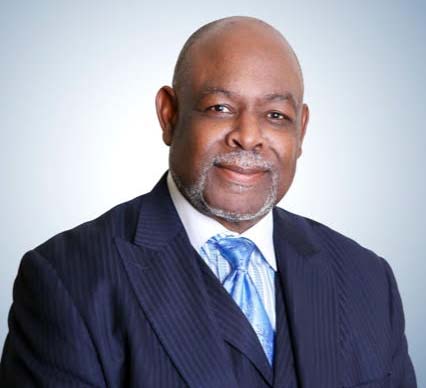
Rev. Gerald L. Agee | Impact Alameda
States and cities have lifted mask mandates and other COVID-related restrictions. But even as we readjust to life as it was before the pandemic, we know that COVID is not fully gone for good.
Variants still pose a threat. And case numbers are still on a gradual decline here in California and around the country. Therefore, we can’t throw all caution to the wind when it comes to keeping our loved ones safe and healthy. The death rate resulting from COVID-19 is still higher for Black Californians than the statewide average, according to numbers from the California Department of Public Health.
At the height of the coronavirus crisis, Black pastors across California recognized the urgency of the COVID-19 threat. As we move from pandemic to endemic, we still do.
We continue to accept the responsibility of this fight, and we understand as faith leaders in our communities that we must combine faith with action. Prayers for healing and health must be backed up by a plan for protection and prevention that keep our communities safe and the virus at bay.
That is why dozens of faith leaders across our state have worked together to keep the doors of our churches open for convenient COVID-19 testing. Some sites offer vaccinations. This effort to keep our congregations and our neighborhoods safe has been made possible with the support of our testing partner Color and the California Department of Public Health.
The pastors in our network, their congregations, staff, and volunteers at our churches and in our community have done an excellent job. Their effort has contributed in no small way to the high COVID-19 vaccination rate and low positivity rate we now have in California. We are truly proud and grateful.
As we walk into this new phase of our COVID-19 response, we must prioritize safety, especially for those among us who are aging or otherwise fragile.
As our slogan tells us, “Don’t guess, get the test” before fully chucking your mask, or going back to work or traveling to see loved ones.
Look up one of our centers in your community to get vaccinated and tested. It is the surest way that we can stem the spread of this virus.
We must decide to renew our hope and lead with faith even stronger than we have been doing. With that resolve, committing ourselves to keeping each other and our communities safe will be easy.
Remember, we can end this endemic once and for all — together.
About the Author
The Rev. Gerald L. Agee is the founder and pastor of Christian Friendship Church in Oakland and the statewide manager for the Black church testing program.
-
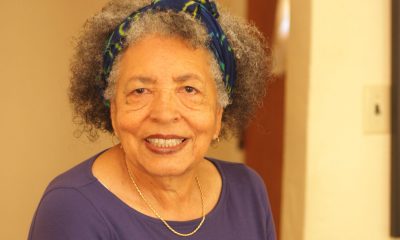
 Business3 years ago
Business3 years agoVolunteer to V.P.: Margot Dashiell Fights for Families Dealing With Mental Illness, Trauma
-
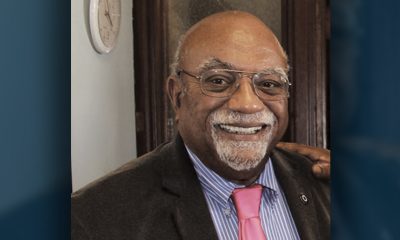
 Highlights3 years ago
Highlights3 years agoJuvenile Justice in Alameda County: We’re on Our Way but More Needs to Be Done for Our Children
-

 Business3 years ago
Business3 years agoWalking by Faith, Leading with Love: Rev. Ken Chambers Invests in Alameda County
-
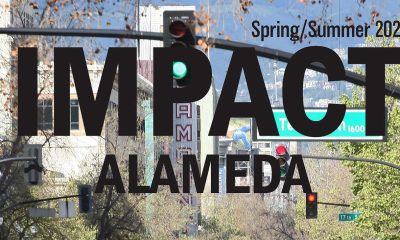
 Resource Guide3 years ago
Resource Guide3 years agoIMPACT MEDIA | SPRING / SUMMER 2022
-

 Highlights3 years ago
Highlights3 years agoA Voice for Victims: Cal NAACP Is Helping to Clear Criminal Records for Free
-

 Highlights3 years ago
Highlights3 years agoJustice = Jobs: YEP, an Oakland Org, Prepares Youth for Careers, Education Access
-
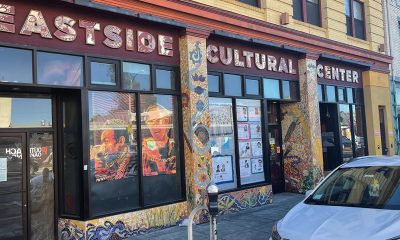
 Entertainment3 years ago
Entertainment3 years agoThe Art of Justice: Oakland’s EastSide Arts Alliance Offers Classes, Bookstore
-

 Business3 years ago
Business3 years agoA Voice for Victims: Cal NAACP Is Clearing Criminal Records for Free

